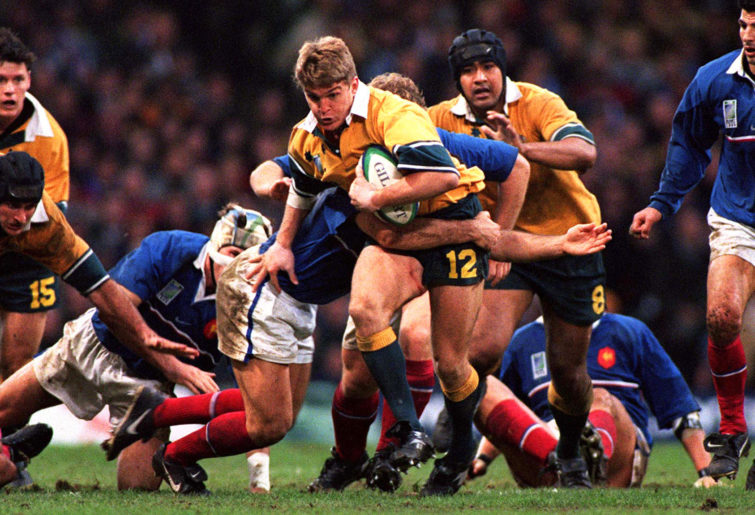Everyone has an idea to improve the game. It seems an inherent part of loving rugby. If we’re not selecting teams, we’re playing with the laws or competition structures or something.
Indeed, The Roar’s business model is major benefactor of this!
But every now and again an idea is thrown up and it just makes sense. And it stays with you, percolating away in the back of your mind until something thrusts it forward to the front and the idea becomes embedded.
The tightness of this year’s Rugby Championship has highlighted the need for bench impact maybe more than in any other year. Everyone knows the importance of benches in tournament play, but much of that thinking has followed over to the TRC this season. And bench impact is never more apparent than when your team’s bench doesn’t have it or can’t provide it.
This is purely a wet finger in the air, but 6-2 bench splits feel like they’re becoming more commonplace. They may not be, but it feels like they’re being discussed more as genuine options.
But it was the use of the bench that got Tim Horan talking on the podcast a few weeks ago, how they’ve grown over time, how a simple tweak could have a massive impact on the modern game, and especially the kind of athlete the modern game is producing.
When Horan made his Test debut in 1989, six players on the bench was still in use and not all six were used.
A decade later, benches of seven had been in use for a while by the time the Wallabies won their second Rugby World Cup, and it was 2009 that the English Premiership added a second prop to the bench and expanded the match-day squad to 23. It was quickly adopted across the board and has been in use ever since.
“It’s probably something that World Rugby won’t change, but what have we now got – eight on the bench?” Horan pondered in Episode 31 of the podcast last month.
“I think you should only be allowed to use four off the bench, so you get that fatigue factor.”
But as much as Horan thinks the idea will benefit the game, the likelihood of such a change is instantly apparent.
“There’s so much about player welfare now, and the knocks players are getting, I don’t think they’ll go back that way and change it,” he followed.
It got us thinking in the discussion and it’s an idea that stayed with me in the weeks after: still name the full eight-player bench, but coaches would be limited to just four tactical substitutions.
“That brings in the fatigue factor,” Horan confirmed.

Tim Horan in his playing days (Photo by Ross Setford/Getty Images)
He went on to say it could be something introduced into Super Rugby, as a local law variation, along with other measures to keep the game moving, like scrum clocks (which are publicly displayed in URC games) and limits to the number of resets for a scrum (as in Major League Rugby in the US – if a scrum goes down, there’s only one reset allowed, after which the referee will award a free kick and the game moves on with no scrum option available).
So, when Matt To’omua expressed a similar view in last week’s Episode 34, naturally the ears pricked up.
“I think we should change the rule on the bench, and only be allowed four subs a game, or something like that,” To’omua said.
This time, he was speaking in the context of a long-held hatred of the 6-2 bench split, and that despite many a coach claiming the extra forward on the bench might actually have a won a game for a team, To’omua’s memory is littered with losses because of teams using 6-2 splits being exposed by injuries.
Acknowledging that two of the four allowed changes would likely have to be front rowers, To’omua suggested, “You get one back and one backrower, or something like that. And look, they’re going to manipulate it, because of safety and that, however I don’t think that should negate the discussion.”
He continued, “I think we need fatigue in the game.
“You’ve got six forwards coming on fresh with 30 minutes to go. It’s pretty hard to break a defensive line down when they’re that fresh.
“I’d love to see Pete Samu having to play in the centres because we’ve used our bench up. I’d love to see that again.
“Let’s bring a bit of that back.”

Pete Samu (Photo by Dan Mullan/Getty Images)
And I think I’m now a convert to the idea. It’s not one I’d previously given a lot of thought to, but the benefits to the back end of games as players start to tire seem obvious.
And it’s not even a new idea, in fairness. A token search while putting this together found a Bleacher Report article from 2016 suggesting that a limit of five subs felt about right, while veteran English rugby scribe Mick Cleary (another friend of the pod) opined for The Telegraph back in 2013 that teams being able to use all eight bench players was already having an adverse effect on the game – just four years after the eighth bench player was added!
Horan is right, that the move is probably highly unlikely, but To’omua is also right in saying that shouldn’t stop the conversation that might give the idea proper consideration.
Additional replacements beyond the limit of four (or five, whatever the number) could be used for genuine injury, particularly a failed HIA. It would be similar to the way substituted front rowers can return to the game now.
Could it open the door for unnecessary HIAs? Maybe, but is a suddenly more conservative approach to head knocks and concussion actually a bad thing?
Four substitutions, maybe one extra for an HIA, and beyond that, coaches and teams might need to get used to the idea of finishing games a man down. They kind of do now, anyway.
Fatigue used to be a major factor in professional rugby, but seems to be diminishing. And it’s arguable whether it’s producing better rugby or not.
The idea that games should be won by the team able to play the best rugby to the final whistle, rather than the one with the best athletes, is one that we should be encouraging, isn’t it?
Fatigue should still be a thing. It’s a conversation that should be had, and the game could easily be better for it.






























































































